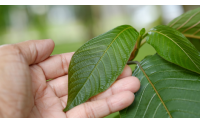
What is Kratom? A Brief Overview
Kratom (Mitragyna speciosa) is a tropical plant native to Southeast Asia, traditionally harvested from regions like Borneo, Thailand, Sumatra, and Malaysia. Known for its unique natural alkaloids, kratom is often used in traditional settings for wellness rituals.
While the plant has centuries-old roots in Asia, it has become the subject of international scrutiny, with governments and health bodies debating its regulation. Laws often hinge on local policies around herbal products, controlled substances, and consumer safety.
Where is Kratom Legal? Global Legal Status by Region (2025)
Kratom’s legal status is one of the most debated topics in the world of ethnobotanicals. While some countries treat it as a restricted or controlled substance, others embrace it as a free, natural herb available for incense, aromatherapy, or collector purposes. This makes it essential to understand the regional differences in regulation before making any purchase decisions.
Below, you’ll find a region-by-region breakdown of kratom legality in 2025.
Europe – In-Depth Legal Analysis
In Europe, kratom laws vary widely between member states. Some countries continue to treat kratom as a controlled substance, while others permit it freely as a botanical product, comparable to incense or other ethnobotanicals.
- Legal / Freely Sold: Countries such as Austria, Greece, Malta, Montenegro, Hungary, North Macedonia, Ukraine, the Czech Republic, Spain, and the Netherlands allow kratom to be sold and collected as a herbal botanical, without specific restrictions.
- Regulated: The Czech Republic's approach focuses on regulation, not prohibition. Kratom is legal to sell (to adults only), but under strict licensing, testing, and labeling standards
- Partially Regulated: In Germany, kratom is legal when it's “not for human consumption.” In Sweden, raw kratom is legal to possess (if not consumed), but its key active component, Mitragynin, is controlled.
- Banned: In countries like Poland, Finland, and Norway, kratom is prohibited under national drug or psychoactive substance laws. In Denmark, kratom is illegal, but physician exceptions are allowed in rare cases.
This fragmented landscape means kratom may be easily accessible in one EU state and completely restricted in the next, making Europe one of the most complex regions for legality. GoPure.shop ships kratom from the Netherlands, where kratom is freely sold. For customers and collectors, this means checking local laws is essential before purchasing or transporting kratom within the EU.
For the latest review of Kratom Legality by Region in Europe, visit the European Kratom Alliance (EKA) report.
United Kingdom – Is Kratom Legal in the UK?
Kratom is currently classified as a controlled substance under the Psychoactive Substances Act 2016 in the United Kingdom. This means the sale, supply, or production of kratom for human use is prohibited. However, kratom is not individually listed in the Misuse of Drugs Act, creating legal areas for non-consumption purposes such as research or incense.
GoPure.shop complies fully with UK law by offering kratom as part of its Creative Botanicals Collection, intended strictly for incense, aroma, or research purposes, always labelled “not for human consumption. Our UK customers can still enjoy access to these products.
Explore more in our Is Kratom Legal in the UK blog.
“GoPure.shop offers kratom to UK customers as a botanical collectable, clearly labelled not for human consumption. Products are discreetly shipped in compliance with PSA 2016.”
United States – Federally Legal, State-Level Variations
While kratom is legal at the federal level in the United States, its legal status varies by state and city. The FDA has issued public health warnings and has not approved kratom for any medical use, sparking ongoing debates between regulatory bodies and advocacy groups.
Read more at FDA and Kratom – Where the U.S. Stands.
- Legal and Freely Available: Most U.S. states permit kratom, allowing it to be sold as a botanical herb.
- Banned States/Counties: A small number of states (e.g., Alabama, Arkansas, Indiana, Vermont, Rhode Island, Wisconsin) and some local jurisdictions have prohibited kratom.
- Regulated Markets: In states like Utah, Arizona, and Nevada, kratom is permitted under the Kratom Consumer Protection Act (KCPA), which requires strict labelling and testing to ensure safety.
This makes the U.S. one of the most dynamic kratom markets, with freedom at the federal level but patchwork rules locally.
Asia & Commonwealth Countries
In Southeast Asia, kratom's native region, approaches vary. Notably:
- Thailand, Malaysia, Myanmar: Re-legalising controlled kratom in Thailand as of 2022; Malaysia still bans it.
- Australia: Classified as a “narcotic” under the Medicines Regulations.
Canada: Permits sale only for non-ingestion purposes.
Why Is Kratom Banned in Some Regions?
Different regions have placed restrictions on kratom for a variety of reasons. Regulators often cite:
- Concerns about product quality and contamination due to a lack of standardisation
- Unverified claims by some vendors marketing kratom as a medical product
- Ongoing debate about its dependency potential, though research calls for a more balanced, science-led evaluation
Increasingly, global experts argue that regulation with proper testing and transparency is a better path than outright prohibition
Disclaimer: This content is for informational and educational purposes only. GoPure.shop does not make claims about internal use or medical benefits. Always check your local laws before purchasing.
Why Choose GoPure.shop? Trusted. Transparent. Compliant.
- Discreet Shipping: Plain packaging. No product names. Fast, secure delivery across legal regions.
- Lab-Tested Batches: Every batch is third-party tested for purity, safety, and compliance.
- No Internal Use Claims: Products are clearly labelled for incense, aroma, and creative botanical collection only.
- Transparent & Legal: We follow all laws and update info regularly, from the PSA to FDA watchlists.
- Smart Support: Our team is friendly, informed, and trained to support informed access.
Go Notural GoPure – Ethically Sourced, Discreetly Delivered
Explore GoPure.shop’s carefully curated kratom selection for incense, aroma, and botanical creativity, always backed by science, discretion, and integrity.
Browse our Curated Kratom Collection
Regulation Drivers & Official Analysis
WHO Executive Committee on Drug Dependency (ECDD)
In 2021, the World Health Organisation (WHO) conducted a pre-review of kratom, ultimately deciding not to recommend international scheduling. This was a significant milestone, with the WHO acknowledging kratom’s potential for safe use when regulated properly.
WHO Kratom Ban Review – What Happened?
U.S. DEA & FDA Reports
DEA labelled kratom a “drug and chemical of concern” in 2020. FDA CAERS reports (2021) logged dozens of adverse events and potential deaths tied to kratom use.
PubMed & NIDA Reviews
Scientific reviews from credible institutions emphasise that kratom carries a moderate abuse potential, particularly compared to scheduled substances. A leading systematic review published in PubMed (2021) calls for regulation, not prohibition, highlighting the urgent need for standardised product testing, quality control, and consumer education rather than criminalisation.
The National Institute on Drug Abuse (NIDA) supports continued research into kratom’s effects, noting that while some risks exist, more data is needed to guide policy. Their overview outlines kratom's complex pharmacology and acknowledges its current legal status, while pointing to ongoing studies that could shape future regulation.
Together, these sources suggest that science-led regulation, rather than blanket bans, may be a more productive and ethical approach to kratom oversight.
The Future of Kratom Regulation in Europe and Beyond
As scientific understanding deepens, the conversation around kratom is shifting from prohibition to responsible, evidence-based regulation. Several organisations are leading this change:
- The European Kratom Alliance (EKA) is campaigning for unified legal frameworks across Europe and promoting harm‐reduction focused policies backed by science.
- The American Kratom Association (AKA) pushes for consumer protections, including the Kratom Consumer Protection Act (KCPA).
- The Kratom Science Network offers research summaries, news, and legal updates supporting transparent education.
As more researchers and lawmakers acknowledge kratom's potential and moderate risk profile, we may see broader moves toward regulated access, especially with growing public demand for standardised testing, transparent labelling, and full product traceability.
These principles are core to GoPure.shop’s values. Every batch is third-party tested, fully labelled, and shipped with care to align with local regulations and global best practices.
Related Kratom by Region Products
Want to explore kratom types by their origin in more detail? Understanding regional differences is key to choosing the right product based on its natural alkaloid makeup.
- Borneo Kratom – Deep forest strains are known for balanced properties
- Malay Kratom – Gentle and earthy with mild profiles
- Sumatra Kratom – Rich and energising strains
- Thai Kratom – Traditionally cultivated, potent regional variety
Also explore:
Kratom Region Differences Blog.
We believe in empowering customers, not making false promises. That’s why we never suggest internal use or make health claims. GoPure means “Feel Good, Naturally”, always within the bounds of local laws and ethics.
FAQs – Detailed Legal Answers
Is kratom legal worldwide?
Kratom does not have a single global legal status. Instead, its regulation is determined by each country or jurisdiction. In some places, kratom is treated as a natural botanical product for incense, research, or collections. In others, it is subject to restrictions or bans under narcotics or psychoactive substance laws. Always verify your local regulations before making a purchase.Is kratom legal in the UK right now?
No, the sale or supply of kratom is still permitted for incense, soap-making, or botanical collection use under the Psychoactive Substances Act 2016 (PSA). Therefore, kratom may still be legally sold in the UK for non-consumptive purposes.
Can I buy kratom in Europe?
Yes, but legality varies by country. For example, it is banned in Poland and Norway, regulated in Germany and the Czech Republic, and openly sold in Spain and the Netherlands.
Why do kratom laws differ so much between regions?
The differences come down to how governments classify botanicals and natural alkaloids. Some regulators view kratom as comparable to other traditional herbs, while others categorize it under stricter drug control frameworks. Factors such as public health policy, scientific research, and cultural attitudes all play a role in shaping kratom’s legal status.
Why is kratom banned in some countries?
Kratom is banned in some countries due to concerns over safety, lack of regulation, and potential dependency risks. Authorities often cite unverified health claims and inconsistent product quality as reasons for restrictions. Many experts argue that regulated markets with testing and labelling are safer alternatives to outright bans.
What’s WHO’s stance on kratom regulation?
In 2021, the WHO decided not to recommend an international ban, recognising the importance of continued monitoring.
Can kratom laws change in the future?
Yes. Kratom regulations are constantly evolving as more research is conducted and governments review existing policies. In recent years, some regions have shifted from prohibition to regulation, while others have moved toward tighter restrictions. This is why it’s important to rely on up-to-date sources and vendors like GoPure.shop that prioritize compliance and transparency.
Organisations like the European Kratom Alliance (EKA) and the American Kratom Association (AKA) are lobbying for Good Manufacturing Practices (GMP) and transparent labelling laws to protect consumers and enable legal trade across regions.
Questions About Shipping or Legality?
We're here to help. View our Shipping Policy for details on where and how we ship, or reach out to our support team for clear, compliance-focused guidance. Whether you're curious about regulations or shipping timelines, we’ll help you stay informed, confidently and legally.



